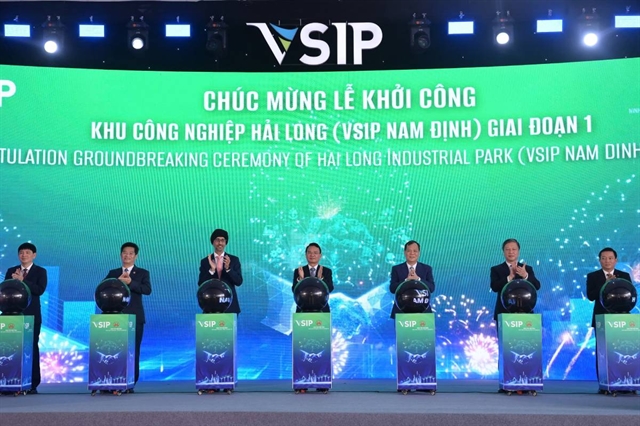 Opinion
Opinion

" />Lê Anh Sơn, who is currently working as Assistant Professor in Institute of Innovation for Future Society, Nagoya University, Japan, talks to Thời báo kinh tế Sài Gòn (Sài Gòn Economic Times) about how Việt Nam can catch up with the global trend in applying Artificial Intelligence
 |
| Lê Anh Sơn |
Lê Anh Sơn, who is currently working as Assistant Professor in Institute of Innovation for Future Society, Nagoya University, Japan, talks to Thời báo kinh tế Sài Gòn (Sài Gòn Economic Times) about how Việt Nam can catch up with the global trend in applying Artificial Intelligence
Developed countries have made gains in Artificial Intelligence (AI), but not easily. Developing countries like Việt Nam face more challenges. What is your view on this? What is the potential for AI in Việt Nam?
Artificial intelligence has spread into the daily lives of people in the developed world like Japan. You can easily find simple AI applications like facial recognition, or robots that are able to talk outside commercial centers. The modern world is now connected, and that’s a good thing. Previously, developing countries often had to wait for technology transfers from more developed countries. Now we can actually catch up with the trend and work together from the very first stage.
In 2014, when the application of AI was still moderate – I started my PhD in Mechatronics Engineering Technology and also completed two Toyota projects on driver support systems. At that time, I conducted more in depth research into AI after I understood the importance of this area. In just a few years, AI has developed dramatically and impacted on various fields. That’s an indication that we won’t have time to wait.
We can start at simple stages, because AI applications can be divided into many levels. A complete AI application is one that has consciousness and is able to process information like a human brain, but that’s something for the future.
Do you believe such a thing is possible?
Of course it would take a lot of time and effort to make something similar to the human brain. Scientists will also need more time to work on producing extremely accurate sensors that can be used in all situations, just like human senses. They will also need to work on algorithms that imitate a human way of thinking. I think it’s totally possible because the application of AI will be huge, and scientists won’t give up.
How can AI applications be used in Việt Nam?
In agriculture, we can use AI to identify crops species and diseases that may affect them. This can also be done in health services, like the early detection of strokes via information about heartbeats and images. AI can also be applied effectively in transportation, especially in self-driving vehicles – by recognizing subjects inside and outside the vehicles. In production, AI can be used to maximize the transportation of goods.
What does Việt Nam need to develop its own AI field and what might be the challenges?
To create AI applications in any field, we need to have ideas, experts in the field, databases and a team of coding staff. Việt Nam does not lack ideas and talents in addressing its problems, but we do lack experts in certain fields.
AI applications in Việt Nam are mostly developed spontaneously by people who are not experts in the fields the applications are being used in. The involvement of experts is of crucial importance because they will be able to identify the core problems in the field before going into coding detail.
Databases are also another important factor in developing AI. Currently we can use some open databases and big data available around the world. But if we continue to do that in the long run, Việt Nam’s AI will only be able to develop moderately. In fact, we need to develop sensors to be able to collect data ourselves in order for AI to develop in Việt Nam.
What is the potential for Việt Nam in this field?
It’s interesting that many AI applications in other countries are actually developed and coded in Việt Nam. Many AI companies have been heading to Việt Nam as a potential market with high quality coders.
AI applications in Việt Nam, however, are still modest, mainly in facial recognition, writing recognition and vehicle recognition. As an expert in driver support systems, I think Việt Nam has the potential to do more than that. With a huge resource of high quality coders, Việt Nam’s potential for AI application is huge.




